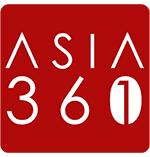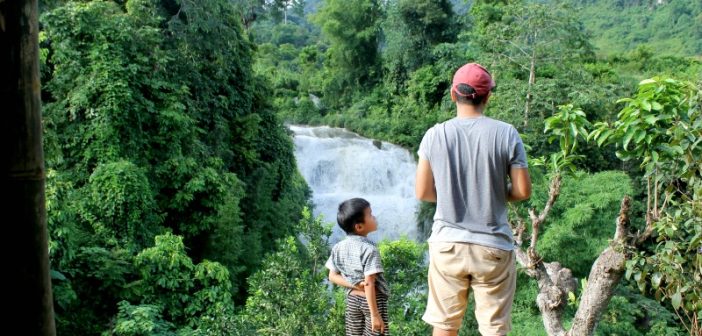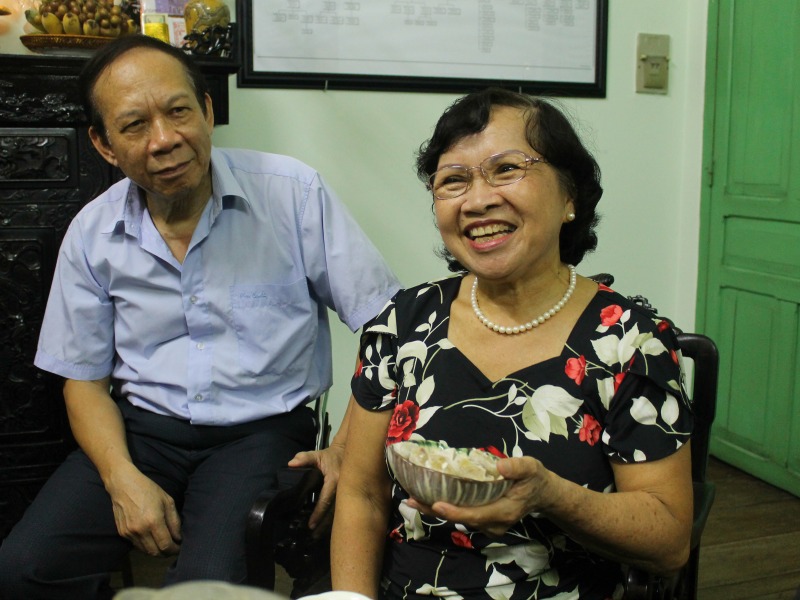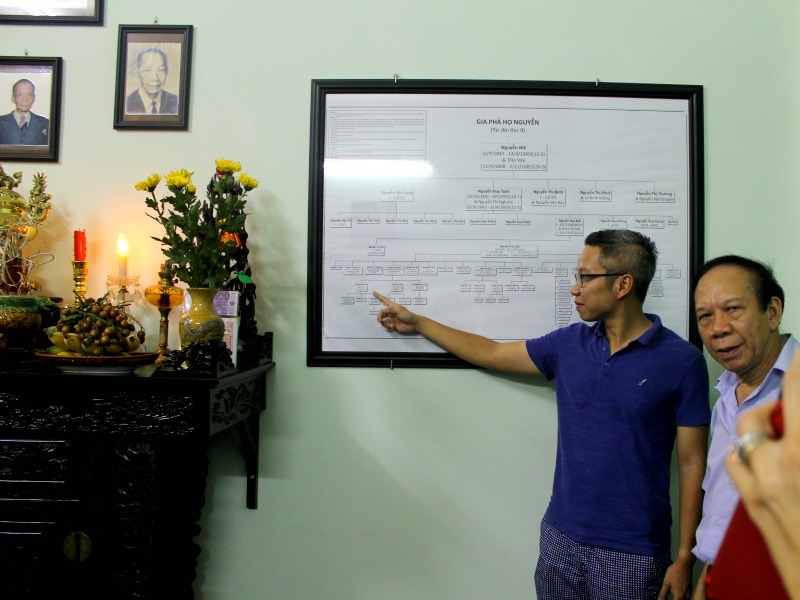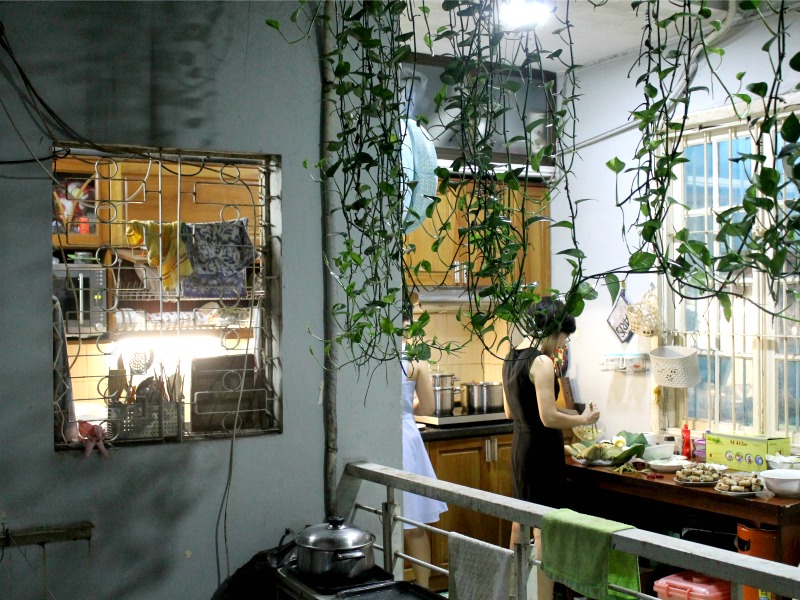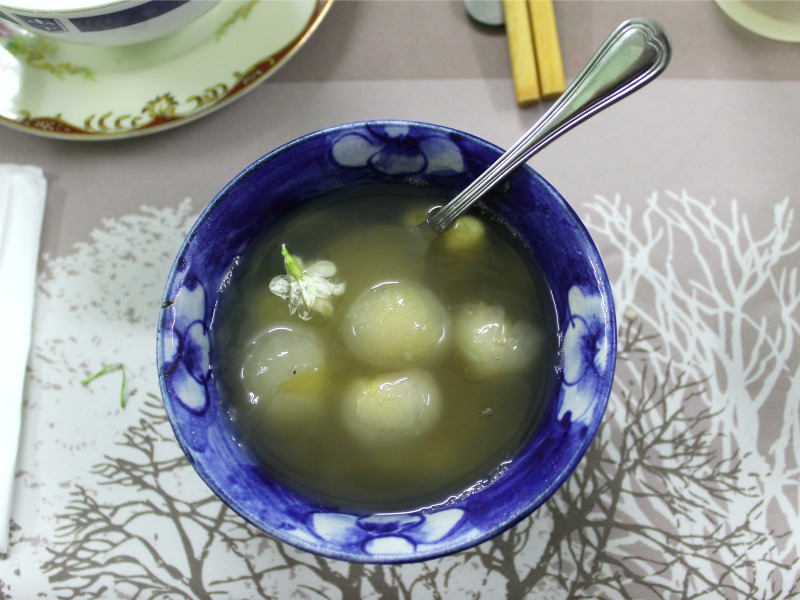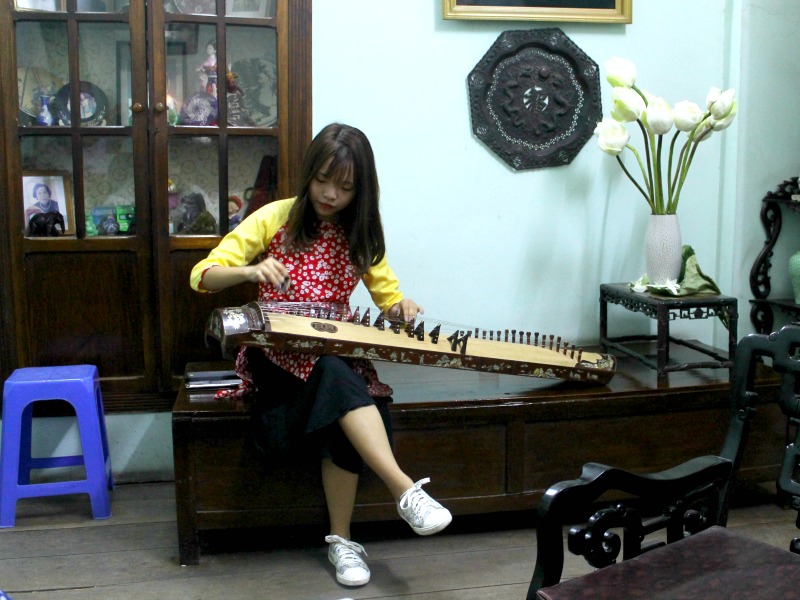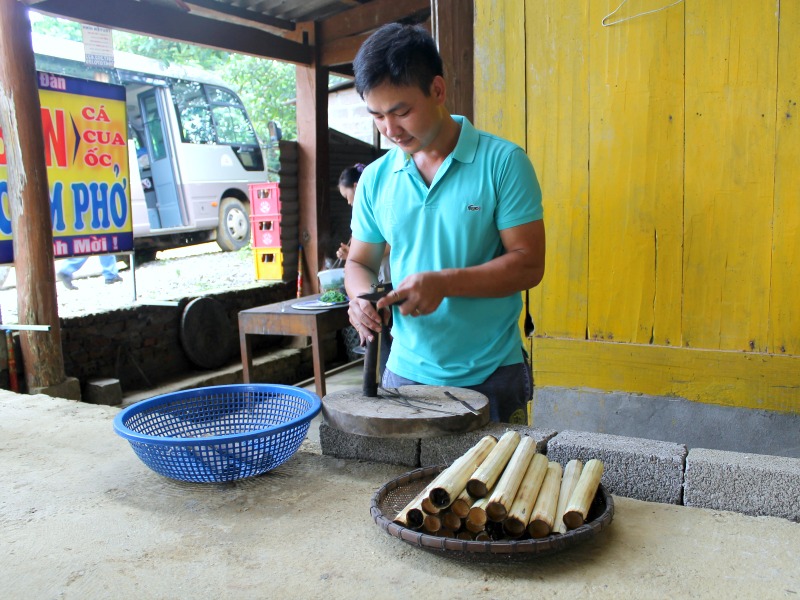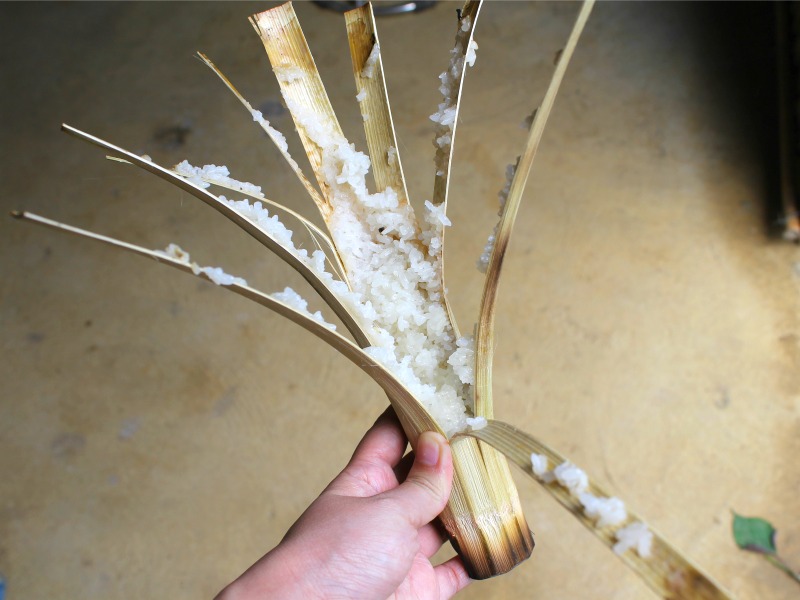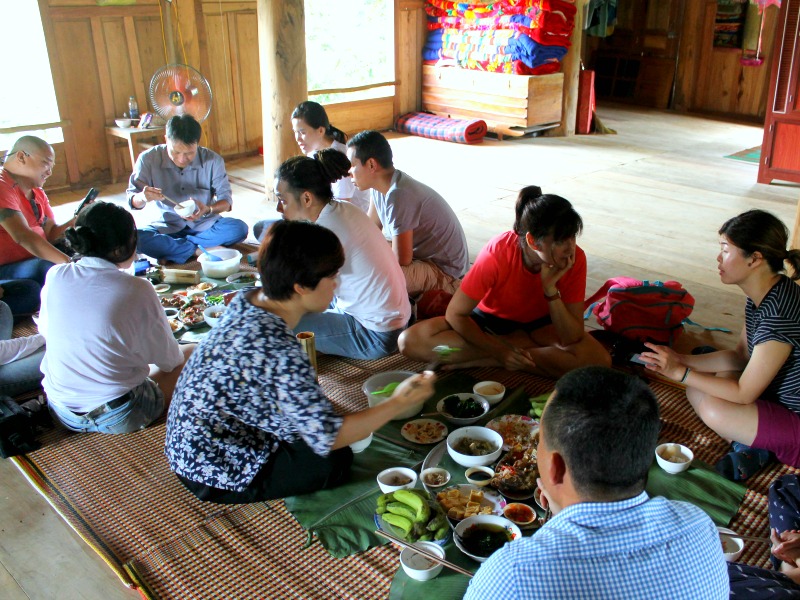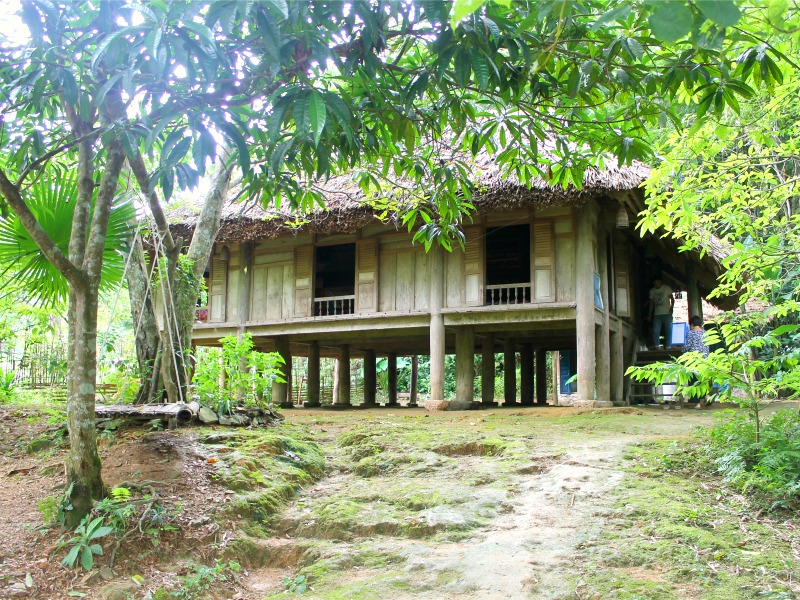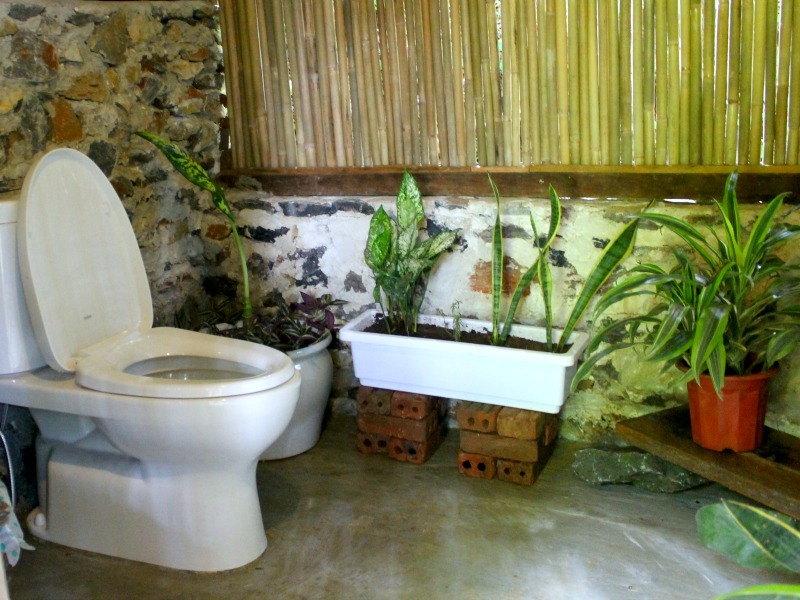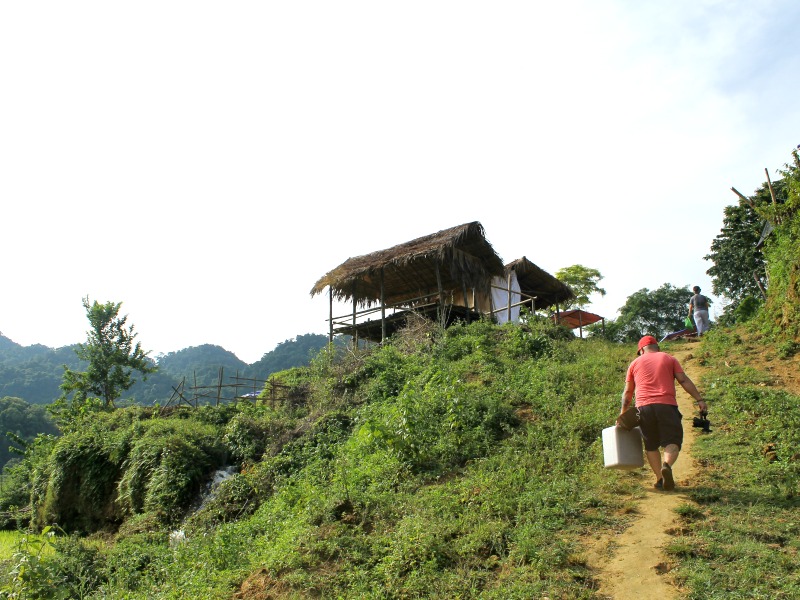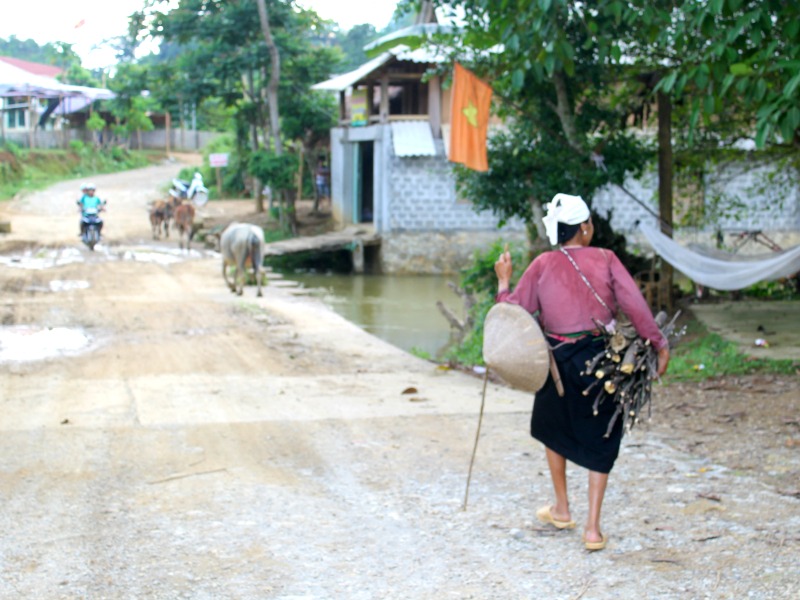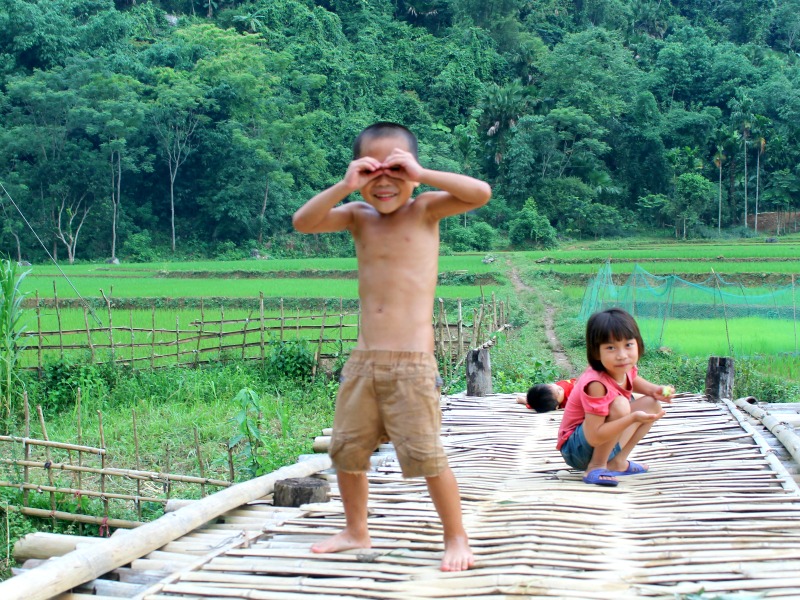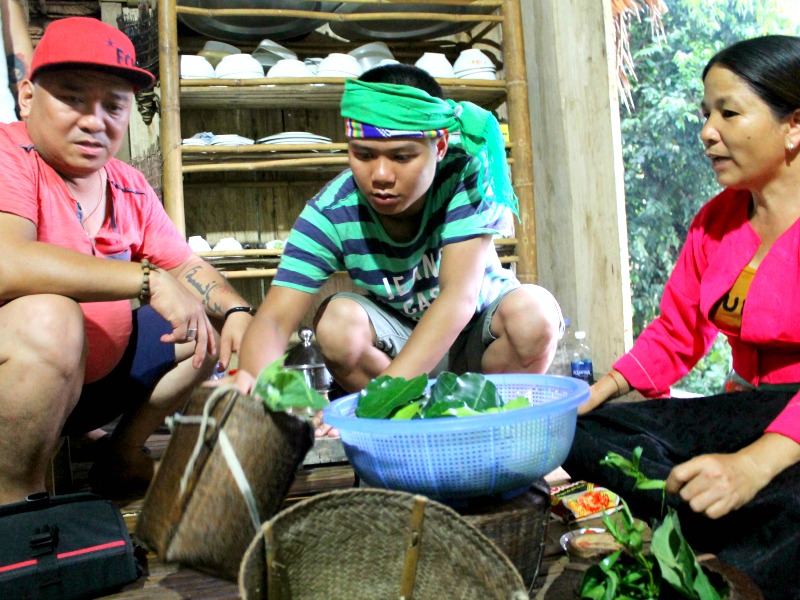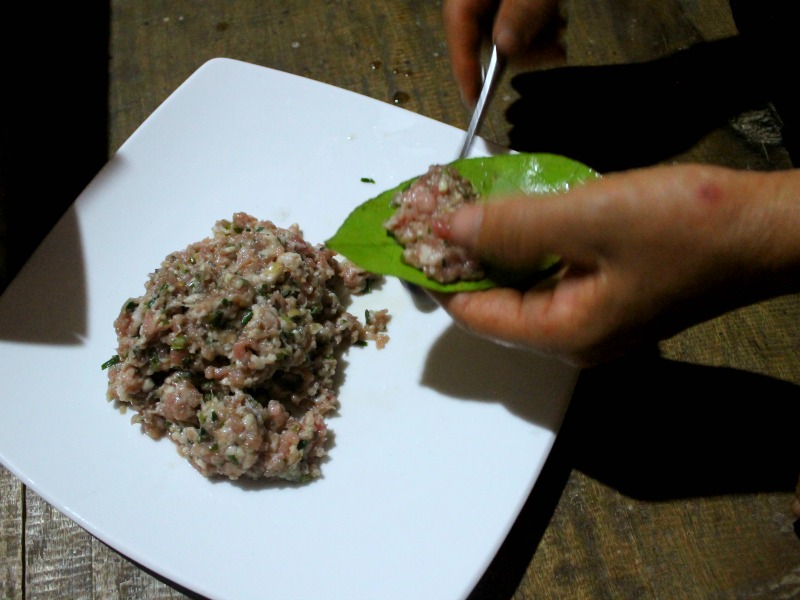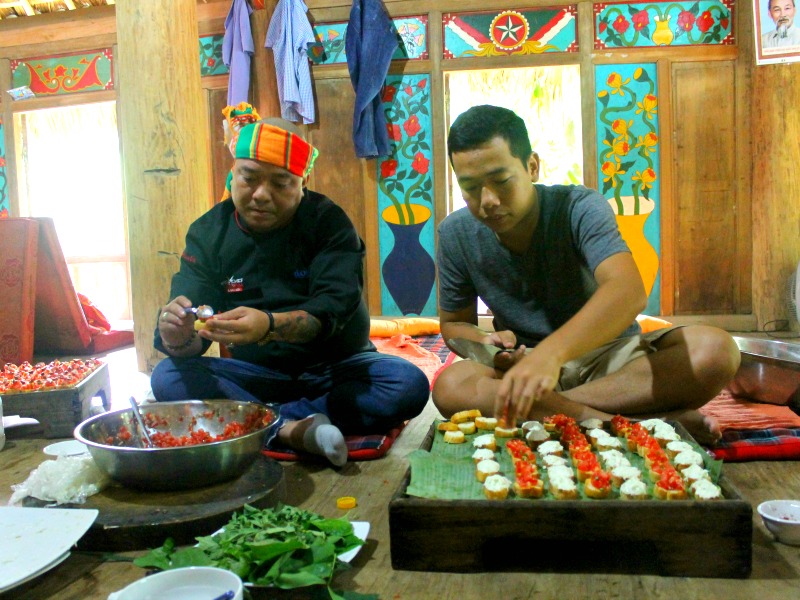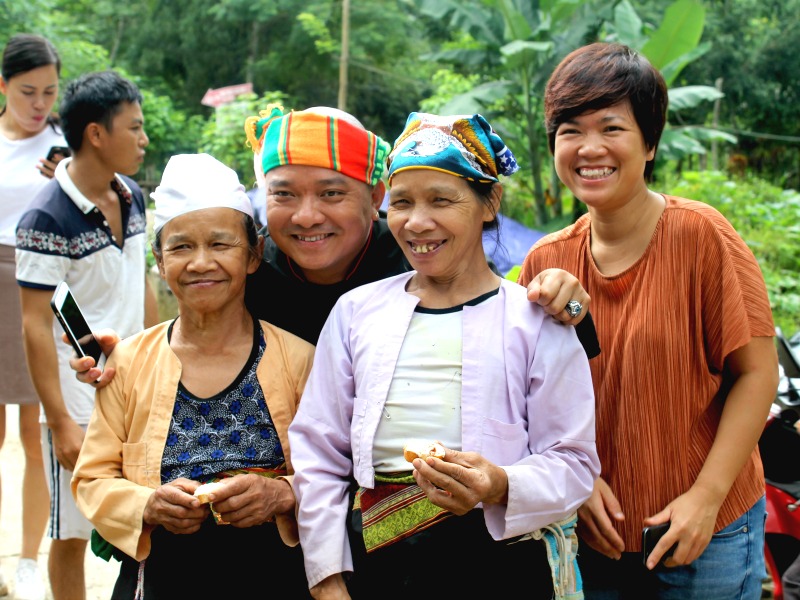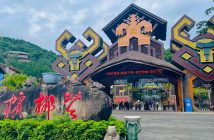Hanoi, the capital of Vietnam and the country’s second largest city, features a unique blend of the East and West cultures with a touch of French influence. A rich history and strong culture aside, food is also at the heart of this thousand-year-old city. Unlike Ho Chi Minh city where the cuisine has many foreign influences, the gastronomy scene in Hanoi follows closely to the traditional Vietnamese culture.
Experiential travel specialist Sens Asia Travel understands the charm of traditional Vietnamese cuisine and seeks to connect travellers and local communities through gastronomy. It offers local-inspired adventures that are away from the grind of the city and are also unique experiences for urbanites like Singaporeans, as I found out on the Muong culinary adventure by Sens Asia Travel.
Throughout the adventure, there were endless conversations about travel experiences and cultural exchanges among us – urban journalists and local travel specialists. On this trip, I had many firsts: travelling to Vietnam, flying on a plane alone, meeting an Iron Chef, tasting authentic Vietnamese food and sleeping in a traditional stilt house.
Day One: Local-hosted Dinner at Old Quarter
When it comes to having a taste of how locals eat, the closest you can possibly get to an authentic experience is having a home-cooked meal in the home of a local. And that was the very thing we did when our guide brought us to Hanoi’s Old Quarter.
Located on Hang Bong street, the home still retains its original structure. Trading width for height and depth, the home is part of unique “tube houses” – a common architecture structure in Hanoi. Up till today, seven generations of the family have lived in that same home. The couple host Mr Dung and Ms Qu are retirees who are eager to connect travellers beyond the façade of Hanoi as a tourist location.
We were greeted with warm and wide smiles spread across the families’ faces as we sat down to engage in a conversation over some lotus tea and local snacks. I did not understand a word of Vietnamese but luckily Sens Asia Travel’s representative was there to help. From the history of the ancient home and their ancestory, to the lotus tea preparation, Mr Dung and Ms Qu were generous in sharing their knowledge with us. Their generosity extended to the dinner where they prepared a feast of comforting home-cooked Vietnamese classics. Laughter and chatters filled up the dining area as we dug into the sumptuous dinner prepared by the hosts.
Regarded as the national flower of Vietnam, the lotus flower holds a special position in Vietnamese hearts and culinary culture. Among the many lotus dishes in Vietnam, the hosts prepared the Steamed Lotus Fried Rice (Cơm hấp lá sen) and Lotus Seed Pudding with Logan (Chè Sen Long Nhãn). I could not stop filling my bowl with scoops of the Steamed Lotus Fried Rice. Wrapped and steamed in lotus leaf, the flavours of the jasmine rice, lotus seeds and assorted vegetables blended in perfect harmony to create an addictive and aromatic dish.
As proud grandparents, the hosts also arranged for their musically talented granddaughter to perform beautiful melodies on her “Gu Zheng” (Chinese: 古箏) and harmonica. Her elegant live performance created the perfect after-dinner atmosphere and ended the night on a beautiful note.
Day Two: Muong Culinary Journey
Believed to be the descendants of the early Vietnamese, the Muong ethnic minority resides in the province of Hao Binh. We embarked on a three-hour long road trip to visit the Muong people at Ngoc Son Ngo Luong, Hoa Bun Province. Before reaching the lodges of the Muong, we stopped by a traditional stilt house to dig into a traditional North Vietnamese lunch, which was simple yet flavourful. The star dish has got to be Com Lam – sticky rice cooked in a bamboo tube, served along with a mixture sesame and salt.
After a full lunch, we headed to the Muong village. The serene space in the village of the Muong people is a perfect getaway for those who want to escape from hustle and bustle of the big cities. As we approached the village, we were greeted by lush greenery, beautiful mountains and paddy fields. The scene of the village transported me back into a life much like Singapore’s kampung of the 1960s. We were led to the guest house – a traditional stilt house, to unpack and prepare for a hiking tour around the village.
Like most of the city dwellers, the thought of a dirty village’s toilet petrified me. My dad’s stories about his kampong’s sanitation did not help either. Once my bags were unpacked, I went to the washroom and was relieved and surprised to find it in a clean and beautiful condition.
Comfortable clothes, shorts, sandals, camera and phone – I thought I was properly dressed and prepared for our hike to collect ingredients for our dinner, but boy was I wrong.
The locals helped to tie a woven basket around my waist for the ease of collection. The hike started with ease as we walked through even grounds overlooking the paddy fields. When it came to conquering the steep terrains of the mountains with a sandal, it was not an easy task. Nonetheless, the rewarding view of the mountain top and the majestic waterfall made up for the tough climb.
During this trip, Sens Asia Travel also invited celebrity Iron Chef Vietnam Nguyen Van Tu along. Chef Tu has grown to become a celebrity chef back in 2013 when he was crowned the winner of Iron Chef – one of Vietnam’s most popular TV shows. Despite his fame, Chef Tu was a down-to-earth individual who is generous in sharing his knowledge about food with us. As we hiked, he pointed out the type of leaves that can be used for cooking and those that are poisonous.
Fun Fact:
When asked about Vietnamese food, most Singaporeans will think of Goi Cuon (fresh spring rolls), Banh Mi (baguette sandwich), or Pho, all of which originate from South Vietnam. Although similar herbs and condiments are present in the Northern Vietnamese cuisine, the preparation differs. For example, due to the weather difference, spring rolls are deep-fried in the colder North Vietnam region.
Along the hike, we interacted with some of the Muong locals who tried to converse with us. It was unfortunate that I did not understand their language and could only smile and nod. Muong children could be seen running around the narrow paths and jumping into the river. Glancing at their big wide grins, I came to envy the children for their carefree nature.

A curious Muong child and our Sens Asia Travel representative stand to overlook a majestic waterfall.

A friendly Muong elderly tries to strike a conversation with me but I can only smile and nod due to language barriers.
As the sun fell behind the horizon, we slowly headed back to the guest house to prepare for dinner. The Muong people retain a traditional lifestyle and use primal tools. Led by the local hosts and Chef Tu, we cooked using their traditional methods passed down through generations. We were guided to prepare a favourite summer appetiser, Ba La Lot, where we wrapped morsels of marinated beef into the betel leaves picked during our hike. As Chef Tu grilled the skewers of Ba La Lot over the charcoal, the leaves charred beautifully and its aroma further accentuated the savoury flavour of the beef.
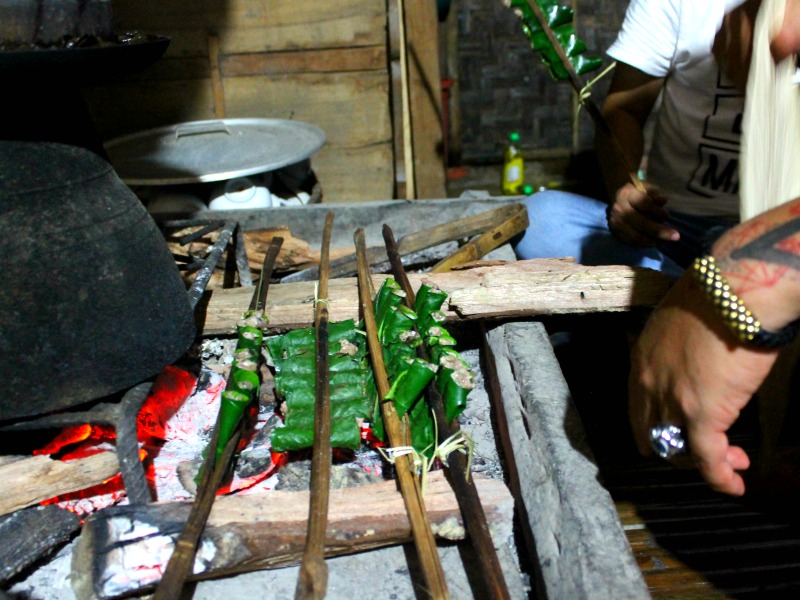
The beautifully seasoned rolls of meat wrapped up in wild leaf are slowly grilled using the Muong traditional cooking method
Finally, everyone gathered in circles to enjoy the authentic Muong cuisine prepared by Chef Tu and the local chefs. The Muong diet is considered healthy as most dishes are grilled or steamed. The fresh produce and fragrant herbs from the land along with a shot of their home-brewed whisky makes a charming Muong culinary experience one will not forget.
The beautiful night ended under a blanket of stars with a traditional dance performed by the local Muong people and us trying to learn their dance.
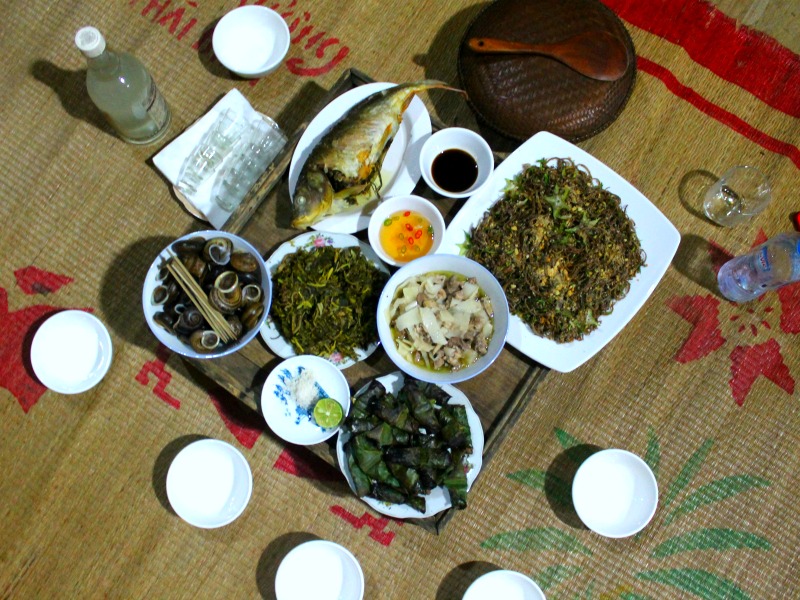
Authentic Muong dinner – Steamed fresh local snails, steamed fish, grilled meat wrapped in leaf, stir-fry vegetables and banana leaves salad
Day Three: Goodbye Meal to the Muong
Soon after the vibrant summer rays began to warm the day, I stepped out of the guest house and was immediately greeted by smiling faces of the Muong children. To thank the Muongs’ hospitality, Chef Tu whips up a delicious bruschetta breakfast for the Muong locals. As the locals savoured the unfamiliar bruschetta, they gave us genuine smiles, which made me feel warm inside. Their smile further reinforced the meaningful exchange of culinary culture in this trip.
Sadly, all good things must come to an end. We thanked and bade goodbye to the Muong children and our hosts as we boarded the bus towards the airport.
This culinary journey to Vietnam had me immersed in the rustic yet simple lifestyle of the Muong people. Among all the travels I have embarked on, this journey was probably the most down-to-earth and sincere one I have ever experienced. Everything about this trip was amazing, while maybe except one thing – sandfly bites (note to self: suit up with long pants and put on insect repellent the next time).
Sens Asia Travel believes in bringing the most authentic travel experience to travellers through the eyes of locals. A love for travel has brought the team together – on a journey to lead travellers to uncover Asia beyond its surface. They understand that each traveller is unique so every journey can be specially tailored. At the same time, they recognise the importance of respecting and embracing local cultures to ensure sustainable development in the areas untouched.
Don’t be a tourist, be a traveller. Hop on the travellers’ bandwagon with Sens Asia Travel and discover Asia deep within.
For bookings or more information, visit https://www.sensasia.com/.
